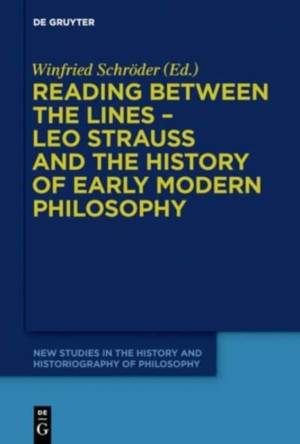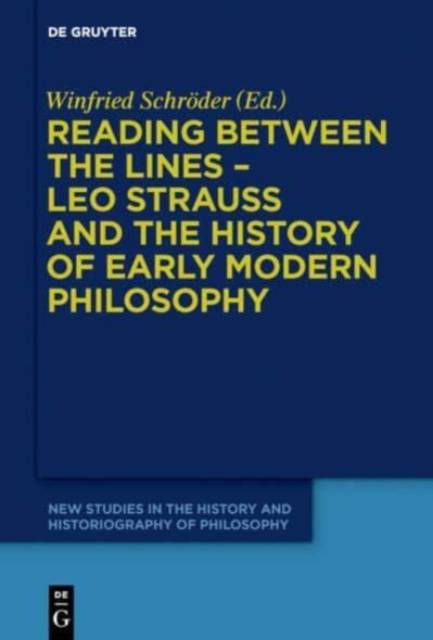
- Afhalen na 1 uur in een winkel met voorraad
- Gratis thuislevering in België vanaf € 30
- Ruim aanbod met 7 miljoen producten
- Afhalen na 1 uur in een winkel met voorraad
- Gratis thuislevering in België vanaf € 30
- Ruim aanbod met 7 miljoen producten
Reading Between the Lines - Leo Strauss and the History of Early Modern Philosophy
Omschrijving
Since its publication in 1952, Leo Strauss's Persecution and the Art of Writing has stirred considerable controversy, particularly among historians concerned with early modern philosophy. On the one hand, several scholars share his view that it would be inadequate to generally take at face value the explicit message of texts which were composed in an era in which severe sanctions were imposed on those who entertained deviating views. 'Reading between the lines' therefore seems to be the appropriate hermeneutical approach. On the other hand, the risks of such an interpretative maxim are more than obvious, as it might come up to an unlimited license to ascribe heterodox doctrines to early modern philosophers whose manifest teachings were in harmony with the orthodox positions of their time. The conributions to this volume both address these methodological issues and discuss paradigmatic cases of authors who might indeed be candidates for a Straussian 'reading between the lines' Hobbes, Spinoza, and Bayle.
Specificaties
Betrokkenen
- Uitgeverij:
Inhoud
- Aantal bladzijden:
- 232
- Taal:
- Engels
- Reeks:
- Reeksnummer:
- nr. 3
Eigenschappen
- Productcode (EAN):
- 9783110427493
- Verschijningsdatum:
- 3/11/2015
- Uitvoering:
- Hardcover
- Formaat:
- Genaaid
- Afmetingen:
- 156 mm x 234 mm
- Gewicht:
- 539 g

Alleen bij Standaard Boekhandel
Beoordelingen
We publiceren alleen reviews die voldoen aan de voorwaarden voor reviews. Bekijk onze voorwaarden voor reviews.










